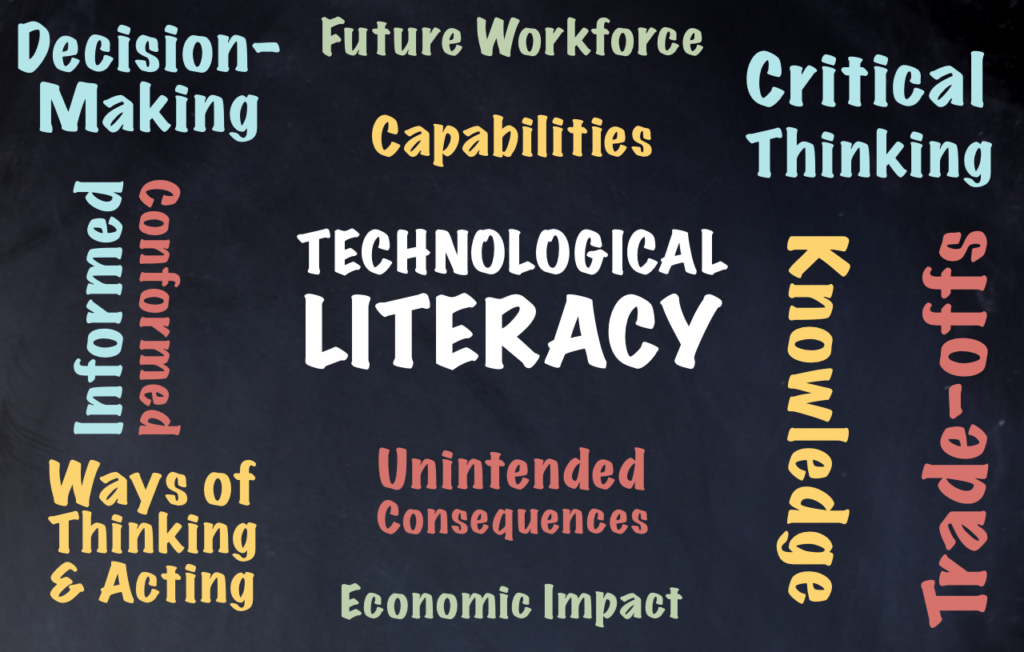‘Are you informed or conformed’ is a tough question. Let’s start to break down the question with the meaning of the keywords per dictionary.com. Being informed suggests having information or knowledge, and being conformed suggests acting in accordance or harmony; complying. I am not suggesting that these two words are mutually exclusive, however, it is important to consider how much of your compliance is based on information and knowledge. The main goal of this blog site is to help people improve their knowledge and understanding of the ‘world-of-education’ such that they are better able to be active participants in and consumers of the process.
While this question can be asked in endless contexts, I am extending it in two areas in this post. First and foremost, I want you to consider how informed you are about the process of education and how are you applying your information and knowledge to the decisions you make with regard to education. Everyone has a role in education, many people have multiple roles, such as student, teacher, administrator, parent of a student, board of directors, support staff, etc. However, these roles are not limited to the K-12 experience, the scope of education extends to college, and professional development, as well as informal educational opportunities. How informed are you about the educational opportunities in which you are engaging, and how often do you follow the process exactly as prescribed by the system of which you are a part?
In an effort to further illustrate the importance of considering this question, I would like to reflect on a study done nearly twenty years ago by the National Academy of Sciences that produced a report entitled, ‘Technically Speaking: Why All Americans Need to Know More About Technology.’ The focus of the study was technological literacy; developing a common understanding of what it is, how important it is and how to achieve it.
The ultimate goal of literacy, in general, is to enable intelligent and thoughtful participation in society. Specifically, the benefit of technological literacy is to be able to make well-informed decisions on matters that affect or are affected by technology, such as the decision to use or not use a product. Unfortunately, a vast majority of people limit their definition of technology to its artifacts, such as computers and software, rather than the infrastructure surrounding the design, manufacture, and maintenance of such artifacts. This limited understanding of what technology encompasses is restricting our ability to make critical assessments of technologies, thus resulting in poorly informed decisions. Literacy is not intended to determine opinions but ensure they are well informed. Technology in a broad sense is the process of modifying nature to meet needs and wants, and it is critical to understand that there will always be trade-offs involved with such a process and can result in unintended consequences. Technologies themselves are not good or bad, but outcomes can be more beneficial to certain groups of people, and from a democratic perspective, decisions affecting many people should be made with as much public involvement as possible. The greater the public’s confidence in their ability to think critically about technologies increases participation in decision-making, adding legitimacy and acceptance of decisions. At the time of the report (2002) the study suggested that despite the rapid growth of and dependence on new technologies, the general public was suffering a decline in the understanding and interaction with them beyond their use, unlike preceding generations, who were intimately familiar with the production, use, and maintenance of the new technologies of their times. This limited exposure to technologies beyond finished consumer goods leads to misconceptions and the misunderstanding of the complex relationships between science, engineering, politics, ethics, law, and economics; in a word: society.
It is my opinion that the economic impact of technological literacy does not start with the development of new technologies but the development of a workforce skilled in critical thinking and problem-solving. A tech-savvy workforce creates a more self-sufficient and sustainable economic base, reducing our dependence on foreign workers in many sectors.
Let’s return to the question, “Are you informed or conformed?” Do you have the information and knowledge required to be able to make a critical assessment of new technologies or applications thereof, or are you accepting what others decide for you? Consider your role(s) in education, do you have the information or knowledge base to make a critical assessment upon which you make decisions regarding your education, or do you blindly comply with the system as it stands? Now let’s look at these two arenas as one; do you see the availability of educational offerings needed to create technologically literate citizens? It’s a matter of musing.

